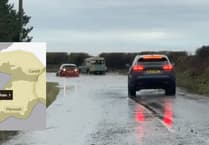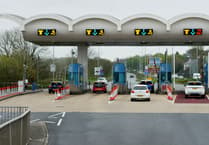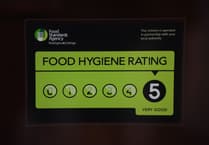The price of parking in Cornwall’s tourist hotspots is set to increase substantially in new Cornwall Council proposals to overhaul parking charging zones.
It comes as Cornwall Council seeks to simplify 120 different parking tariffs into three zones based on the primary use of the car park, with tourist hot spots targeted for the largest parking charges.
Car parks in these areas, including Bude and Looe, are set to be put in ‘Zone A’ of the new Council bands, meaning that one-hour parking could cost as much as £2.20 an hour.
In addition, the new proposals are set to axe free parking in the evenings – with a £2.50 flat rate between 6 pm and midnight for Zone A areas proposed in the new changes. Areas in Zone B and C will have no evening parking charges, but the charging period is set to be extended to 6 pm.
The Local Democracy Reporting Service reports that some car parks in Zone A will switch to a Zone B parking zone in winter, meaning that parking will cost less in the off-season.
Areas in the proposed Zone A include Bude, Looe, Fowey, Hayle, Polzeath, Widemouth Bay, Marazion, Padstow, Perranporth, Polzeath, Port Isaac, Porthtowan and Seaton.
Areas in the proposed Zone B include Carbis Bay, Falmouth, Newquay, Penzance and St Ives.
Areas in the proposed Zone C include Launceston, Liskeard, Par, St Agnes and Tintagel.
The proposals, which are set to go out to a public consultation starting on January 19 before a final decision is made afterwards by Cornwall Council’s cabinet, also reveal how much the new parking charges will be for each zone.
The report stating the new proposed parking tariff states: “Cornwall Council is responsible for over 280 off-street car parks serving a range of purposes, with varying standards, charges and usage which currently do not fit within one clear operational strategy. This results in a lack of strategic traffic management with car parks not effectively contributing to the wider transport strategy; complex and confusing tariffs for customers; complicated enforcement and unnecessary costs incurred each year the tariffs are revised.
“A comprehensive review of parking tariffs has been carried out over the last six months against a broad range of objectives to support the economy, environment, carbon reduction and communities.
“The proposal removes the current complexity of having almost 120 different parking tariffs across the 135 or so current chargeable car parks. The proposal is to replace this with a three-zone system where all car parks are placed into one of seven bands based on key criteria.”





Comments
This article has no comments yet. Be the first to leave a comment.